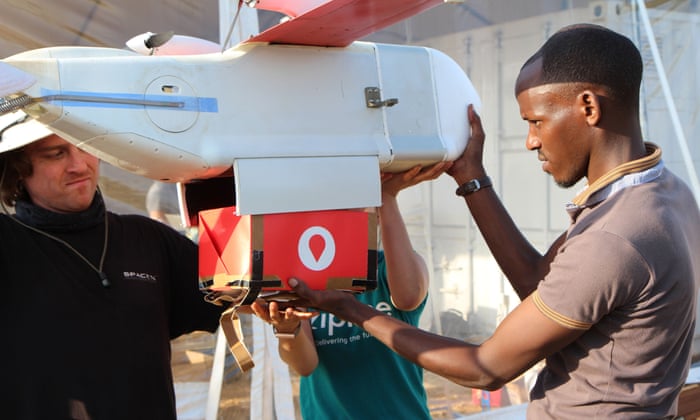Zipline: The Medical Drone Delivery Startup Now Valued at $1.2 Billion in Ghana
Zipline is not leaving any stone un-turned. While aiming to solve medical emergency problems, it is not entirely looking away from the funding that would sustain its life for a greater time to come. The American startup which delivers medical supplies, including blood, rabies vaccines and antivenom, to thousands of hard-to-reach health clinics in Rwanda and Ghana is now worth $1.2 billion in valuation.

The startup crossed the new line in a $190 million new venture funding from top venture capitalists, including Baillie Gifford, The Rise Fund (which is TPG’s global impact fund), Temasek, Alphabet’s investment arm GV and Katalyst Ventures. The funding brings Zipline’s total capital raised to $225 million, before finally putting its market worth at $1.2 billion valuation.

Zipline Is Not Looking Back — The New Funding Will Enable It To Shoot Beyond Its Boundaries
For CEO, Keller Rinaudo, who co-founded Zipline with Keenan Wyrobek and William Hetzler in 2011, with the new funding, Zipline is aiming to set up delivery hubs at 2,600 health facilities in Rwanda and Ghana by the end of this year.
And it is not stopping there; Zipline will soon be flying drones across the US state of North Carolina where it is expected to be making deliveries of medical supplies. It has since secured the permission of America’s Federal Aviation Administration to do so.
“People think what we do is solving a developing economies problem. But critical-access hospitals are closing at an alarming rate in the U.S., too, especially if you live in the rural U.S. Life expectancy there has declined over the past several years,” Rinaudo said.
By partnering with health-care facilities, governments and pharmaceuticals businesses, Rinaudo said Zipline aims to provide a much higher level of access to necessary treatments wherever people live.

Key Reminder of How Zipline Is Gradually Invading The Drone Market And Delivering Services
- Zipline recently expanded into Ghana from Rwanda
- Founded in 2011, the recent expansion into the Ghanaian market means Zipline is now able to deliver more than 170 different vaccines, blood products and medications to nearly 22 million people.
- Zipline’s drones carry up to about 4 lbs (or 1.75 kg) of cargo, fly at up to 68 mph (or 110 km/hr) in all weather and have a round-trip range of about 99 miles (or 160 km).
- Already in Rwanda, Zipline’s drones have flown more than 1 million km and have made more than 13,000 successful deliveries.
- Zipline has gained commercial traction by flying lifesaving medical supplies to thousands of rural clinics instead, making it essentially different from other types of drone-delivery businesses.
- According to data from the National Center for Health Statistics, drug overdose deaths in the United States have been a major factor in lower life expectancy in the U.S, especially in rural areas. This is what Zipline hopes to solve.

Zipline is looking beyond Ghana, and Rwanda and North Carolina. In fact, the startup is sure that more funds will come for more of its expansion across Africa, South Asia, Southeast Asia and the America and properly position the company to serve 700 million people in the next five years.

Zipline is winning and gaining momentum. One key strategy the startup brought to the table is: make last-mile logistics not only a common thing for food and retail but also for the supply of life-saving medical services.
Charles Rapulu Udoh

Charles Rapulu Udoh, a Lagos-based Lawyer with special focus on Business Law, Intellectual Property Rights, Entertainment and Technology Law. He is also an award-winning writer. Working for notable organisations so far has exposed him to some of industry best practices in business, finance strategies, law, dispute resolution and data analytics both in Nigeria and across the world.

